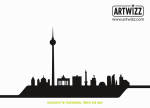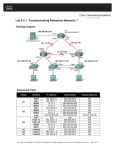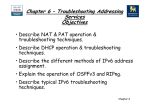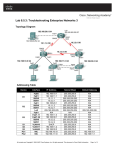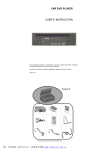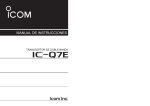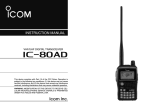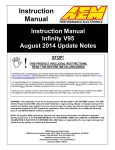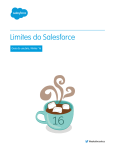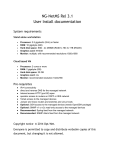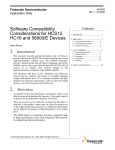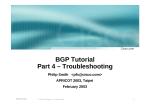Download BASIC MULTICAST TROUBLESHOOTING
Transcript
BASIC MULTICAST TROUBLESHOOTING Piotr Wojciechowski (CCIE #25543) ABOUT ME ¢ Senior Network Engineer MSO at VeriFone Inc. ¢ Previously Network Solutions Architect at one of top polish IT integrators ¢ CCIE #25543 (Routing & Switching) ¢ Blogger – http://ccieplayground.wordpress.com ¢ Administrator of CCIE.PL board The biggest Cisco community in Europe Over 6100 users 3 admin, 7 moderators 48 polish CCIEs as members, 20 of them actively posting About 150 new topics per month About 1000 posts per month English section available! AGENDA 1. 2. 3. Multicasts – basics you have to know Basic diagnostics Why can’t I register in multicast network? MULTICASTS – BASICS YOU HAVE TO KNOW ¢ Multicasts: UDP Traffic Best effort State of multicast distribution and signalization changes dynamically Application controlled Multicast replication Both source and receiver have to register MULTICASTS – BASICS YOU HAVE TO KNOW ¢ One source – many receivers Source have unicast A, B or C class address Receiver is unknown, destination address is from class D MULTICASTS – BASICS YOU HAVE TO KNOW ¢ Three modes: Dense Mode – we assume that receiver is on every subnet, so multicast traffic should be replicated on every network. Routers must explicitly declare they do now want to receive multicast traffic for particular group (due to no receivers) and refresh this request periodically. Sparse Mode – unidirectional tree is built from defined point in network (RP) toward receivers, that have explicitly declare they want to receive traffic. In next stages this tree can be rebuild using source of multicast traffic as a root. MULTICASTS – BASICS YOU HAVE TO KNOW ¢ Sparse-Dense Mode Hybrid mode. Groups with defined RP use sparse mode. All others use dense mode This mode is required to propagate information of RP if Auto-RP technology is used but without Auto-RP Listener. MULTICASTS – BASICS YOU HAVE TO KNOW ¢ Building multicast tree: Shared Tree – root of the tree is RP. All receivers have to register to RP, he manage traffic distribution to receivers. MULTICASTS – BASICS YOU HAVE TO KNOW ¢ Building multicast tree: Source Tree – root of the tree is source for prticular multicast group. For each receiver (S,G) pair is created. MULTICASTS – BASICS YOU HAVE TO KNOW ¢ Any Source Multicast (ASM) Classic mode of PIM-SM Shared Tree and Source Tree are used For Shared Tree RP’s are used ¢ Source Specific Multicast (SSM) Only Source Tree is used No RP Multicast groups only within 232.0.0.0/8 (IPv4) and FF3x::/96 (IPv6) subnets ¢ Bidirectional Shared Tree PIM (BiDir) MULTICASTS – BASICS YOU HAVE TO KNOW ¢ (*,G) RP is a root We know group address but source is unknown ¢ (S,G) – Incoming Interface Interface towards multicast source (Source Tree) or RP (Shared Tree) ¢ OIL – Source Tree notification Source of multicast traffic is a root We know both source and group address ¢ IIF – Shared Tree notification – Outgoing Interface List List of interfaces where multicasts are replicated and distributed MULTICASTS – BASICS YOU HAVE TO KNOW – Randezvous Point. For Sparse Mode point of reference required to build common multicast tree. ¢ FHR – First Hop Router. First router on the path. Responsible for source registration at RP. ¢ LHR – Last Hop Router. Last router on the path, closes to the receiver. ¢ RP MULTICASTS – BASICS YOU HAVE TO KNOW ¢ Reverse Path Forwarding Check Used to avoid loops while distributing multicasts Source address is used as a reference: If best route in unicast routing table to source is through the interface, where the packet was received, then is should be replicated ¢ If packed is received with other interface then it should be dropped ¢ If same packet is received through multiple interfaces it will be replicated only once. REVERSE PATH FORWARDING CHECK ¢ Both packets with data (data plane) as well as some of control packets (control plane) have to pass RPF rule: PIM (*,G) Join – are always sent using shortest path to RP BSR/RP addresses sent inside of BSR messages Every multicast packet in data plane REVERSE PATH FORWARDING CHECK REVERSE PATH FORWARDING CHECK BASIC COMMANDS R8#show ip mroute IP Multicast Routing Table Flags: D -‐ Dense, S -‐ Sparse, B -‐ Bidir Group, s -‐ SSM Group, C -‐ Connected, L -‐ Local, P -‐ Pruned, R -‐ RP-‐bit set, F -‐ Register flag, T -‐ SPT-‐bit set, J -‐ Join SPT, M -‐ MSDP created entry, E -‐ Extranet, X -‐ Proxy Join Timer Running, A -‐ Candidate for MSDP Advertisement, U -‐ URD, I -‐ Received Source Specific Host Report, Z -‐ Multicast Tunnel, z -‐ MDT-‐data group sender, Y -‐ Joined MDT-‐data group, y -‐ Sending to MDT-‐data group, V -‐ RD & Vector, v -‐ Vector Outgoing interface flags: H -‐ Hardware switched, A -‐ Assert winner Timers: Uptime/Expires Interface state: Interface, Next-‐Hop or VCD, State/Mode (*, 224.100.0.1), 00:00:33/stopped, RP 10.10.0.1, flags: SJCL Incoming interface: Ethernet0/2, RPF nbr 10.0.38.3 Outgoing interface list: Ethernet0/0, Forward/Sparse-‐Dense, 00:00:32/00:02:56 Informacja o RP Flags dla Shared Tree (*,G) Shared Tree (10.10.0.1, 224.100.0.1), 00:00:30/00:02:29, flags: LJT Incoming interface: Ethernet0/2, RPF nbr 10.0.38.3 Outgoing interface list: Ethernet0/0, Forward/Sparse-‐Dense, 00:00:30/00:02:56 (S,G) Source Tree BASIC COMMANDS R8#sh ip igmp interface Ethernet0/0 is up, line protocol is up Internet address is 10.0.89.8/24 IGMP is enabled on interface Current IGMP host version is 2 Current IGMP router version is 2 IGMP query interval is 60 seconds IGMP configured query interval is 60 seconds IGMP querier timeout is 120 seconds IGMP configured querier timeout is 120 seconds IGMP max query response time is 10 seconds Last member query count is 2 Last member query response interval is 1000 ms Inbound IGMP access group is not set IGMP activity: 1 joins, 0 leaves Multicast routing is enabled on interface Multicast TTL threshold is 0 Multicast designated router (DR) is 10.0.89.8 (this system) IGMP querying router is 10.0.89.8 (this system) Multicast groups joined by this system (number of users): 224.100.0.1(1) BASIC COMMANDS R8#show ip igmp groups IGMP Connected Group Membership Group Address Interface Uptime Expires Last Reporter Group Accounted 224.100.0.1 Ethernet0/0 00:07:19 00:02:56 10.0.89.8 224.0.1.40 Ethernet0/1 00:30:09 00:02:47 10.0.78.8 BASIC COMMANDS R8#sh ip igmp groups detail Flags: L -‐ Local, U -‐ User, SG -‐ Static Group, VG -‐ Virtual Group, SS -‐ Static Source, VS -‐ Virtual Source, Ac -‐ Group accounted towards access control limit Interface: Ethernet0/0 Group: 224.100.0.1 Flags: L U Uptime: 00:07:30 Group mode: EXCLUDE (Expires: 00:02:45) Last reporter: 10.0.89.8 Source list is empty Interface: Ethernet0/1 Group: Flags: 224.0.1.40 L U Uptime: 00:30:20 Group mode: EXCLUDE (Expires: 00:02:36) Last reporter: 10.0.78.8 Source list is empty SAMPLE NETWORK SOURCE FHR E0/2 R1 RP E0/0 R2 E0/1 E0/2 E0/2 R7 R3 E0/1 R8 LHR E0/0 RECEIVER WHEN WE CAN EXPECT PROBLEMS? ¢ Many IGP protocols and redistribution between them – possible routing asymmetry and many topology changes ¢ PIM is not activated on all interfaces ¢ NBMA segments ¢ Many tunnels used to transport multicasts ¢ Problems with hardware performance ¢ Bad network design and RP placement TROUBLESHOOTING APPROACH ¢ Debugging from receiver to the source Problem can affect only group of receivers – look for their common attributes ¢ Perform full diagnostics on every router on the path PROBLEM: (S,G) TREE IS NOT CREATING ¢ Problem: in multicast routing table (mroute) on LHR we can only see (*,G) entries We do have active source and its sending traffic (*,G) path is correct No (S,G) entries in mroute table PROBLEM: (S,G) TREE IS NOT CREATING ¢ Solution: We need a receiver! Source-specific multicast (SSM) tree would not build unless there is at least one receiver for a group ¢ Properly registered receiver is the one, that sent PIN Join for multicast group ¢ PROBLEM: DUPLICATED PACKETS ¢ Problem: Receiver sometimes receive duplicated packets for groups he joined to. ¢ Possible causes: Traffic sent in dense mode Router periodically floods data on interfaces time to time If no receivers are registered then multicast traffic is pruned unless timer expire If there are at least two routers on network segment they elect forwarder who will replicate traffic on this segment When the timers expires process of flooding, pruning and election are repeated which may cause of duplicated packets being sent over that segment PROBLEM: DUPLICATED PACKETS ¢ Solution: Change dense mode to sparse mode This may also be caused by hardware problems, ie. overloaded line cards in routers or switches. It’s up to an application to handle duplicated packets, so don’t worry to much (unless it kills your bandwidth) PIM-SM REGISTRATION PROCESS SOURCE 1 E0/2 (*,G) (S,G) FHR R1 2 E0/0 1. Sender start sending data RP R2 (*,G) (S,G) E0/1 R3 E0/2 E0/2 2. FHR register source in RP using PIM Register message 3. On RP and all routers towards source (*,G) and (S,G) entries are created R7 E0/1 R8 LHR E0/0 RECEIVER PIM-SM REGISTRATION PROCESS SOURCE 1 E0/2 FHR R1 2 E0/0 1. Receiver send IGMP Membership Report in his LAN segment – its received by R8 2. R8 send registration to RP using PIM Join message 3. (*,G) entries are created on all router on path to RP RP R2 (*,G) 2 E0/1 (*,G) R3 E0/2 E0/2 2 1 R7 E0/1 R8 LHR E0/0 (*,G) RECEIVER PIM-SM REGISTRATION PROCESS SOURCE 1 E0/2 FHR R1 2 E0/0 1. Traffic is being transmitted using Shared Tree RP R2 2 E0/1 R3 E0/2 E0/2 2 1 R7 E0/1 R8 LHR E0/0 RECEIVER PROBLEM: RECEIVER CAN’T REGISTER ¢ Problem 1: We are sure that receiver sends IGMP Membership Report Registration request is not processed by LHR SOURCE FHR E0/2 R1 RP E0/0 R2 E0/1 R3 E0/2 E0/2 IGMP Report R7 E0/1 R8 LHR E0/0 RECEIVER PROBLEM: RECEIVER CAN’T REGISTER ¢ Possible causes: On L2 path from receiver to source IGMP filtering occurs Access-list on router interface PIM is not enabled on interface, where receiver is connected R8#sh run int e0/0 Building configuration... Current configuration : 83 bytes ! interface Ethernet0/0 ip address 10.0.89.8 255.255.255.0 ip ospf 1 area 0 end PROBLEM: RECEIVER CAN’T REGISTER ¢ Possible causes: PIM is not enabled on interface, where receiver is connected No registration for the group (224.10.0.1) Ethernet0/0 is up, line protocol is up Internet address is 10.0.89.8/24 Broadcast address is 255.255.255.255 Address determined by setup command MTU is 1500 bytes2 Helper address is not set Directed broadcast forwarding is disabled Multicast reserved groups joined: 224.0.0.5 224.0.0.6 Outgoing access list is not set Inbound access list is not set R8#sh ip igmp groups IGMP Connected Group Membership Group Address Interface Uptime Expires Last Reporter Group Accounted 224.0.1.40 Ethernet0/1 02:13:52 00:02:03 10.0.78.8 PROBLEM: RECEIVER CAN’T REGISTER ¢ Possible causes: PIM is not enabled on interface, where receiver is connected R8#conf t Enter configuration commands, one per line. End with CNTL/Z. R8(config)#int e0/0 R8(config-‐if)#ip pim sparse-‐mode R8#sh ip igmp groups IGMP Connected Group Membership Group Address Interface Uptime Expires Last Reporter Group Accounted 224.10.0.1 Ethernet0/0 00:00:03 00:02:56 10.0.89.8 224.0.1.40 Ethernet0/1 03:21:35 00:02:23 10.0.78.8 PROBLEM: RECEIVER CAN’T REGISTER ¢ Problem LHR router is receiving registration requests PIM Join is not transmitted over the network ¢ Possible 2: causes (1): Routers are not forwarding IGMP Membership Report – no known RP for the group R8#show ip pim rp 224.10.0.1 Group: 224.10.0.1, RP: 10.10.0.1, v2, uptime 03:30:41, expires 00:02:19 R8#show ip mroute IP Multicast Routing Table (*, 224.10.0.1), 00:21:06/00:02:30, RP 10.10.0.1, flags: SJCL Incoming interface: Ethernet0/2, RPF nbr 10.0.38.3 Outgoing interface list: Ethernet0/0, Forward/Sparse, 00:21:06/00:02:30 PROBLEM: RECEIVER CAN’T REGISTER ¢ Problem 2: LHR router is receiving registration requests PIM Join is not transmitted over the network SOURCE FHR E0/2 R1 RP E0/0 R2 E0/1 E0/2 E0/2 R7 R3 E0/1 ? R8 LHR ? E0/0 RECEIVER PROBLEM: RECEIVER CAN’T REGISTER ¢ Possible causes (1): PIM Join is not transmitted by router – no knowledge where RP is located R8#sh ip pim rp mapping 224.10.0.1 PIM Group-‐to-‐RP Mappings Group(s) 224.0.0.0/4 RP 10.10.0.1 (?), v2 Info source: 10.10.0.1 (?), via bootstrap, priority 0, holdtime 150 Uptime: 03:49:01, expires: 00:02:03 PROBLEM: RECEIVER CAN’T REGISTER ¢ Possible causes (1): PIM Join is not transmitted by router – no knowledge where RP is located How router can know RP address? Auto-RP ¢ BSR ¢ Static ¢ PROBLEM: RECEIVER CAN’T REGISTER ¢ Possible causes (2): Router can’t send PIM Join – no path to RP R8#show ip mroute (*, 224.10.0.1), 00:33:17/00:02:36, RP 192.168.2.2, flags: SJCL Incoming interface: Null, RPF nbr 0.0.0.0 Outgoing interface list: Ethernet0/0, Forward/Sparse, 00:33:17/00:02:36 R8#show ip rpf 192.168.2.2 failed, no route exists R8#show ip route 192.168.2.2 % Network not in table PROBLEM: RECEIVER CAN’T REGISTER ¢ Possible causes (3): Router can’t send PIM Join – incorrect path to RP R8#show ip pim rp mapping 224.10.0.1 IP address of RP is known PIM Group-‐to-‐RP Mappings Group(s) 224.0.0.0/4 RP 10.10.0.1 (?), v2 Info source: 10.10.0.1 (?), via bootstrap, priority 0, holdtime 150 Uptime: 04:13:05, expires: 00:02:06 We know the path to RP R8#sh ip route 10.10.0.1 Routing entry for 10.10.0.1/32 Known via "ospf 1", distance 110, metric 31, type intra area Last update from 10.0.38.3 on Ethernet0/2, 04:13:16 ago Routing Descriptor Blocks: * 10.0.38.3, from 10.10.0.1, 04:13:16 ago, via Ethernet0/2 Route metric is 31, traffic share count is 1 PROBLEM: RECEIVER CAN’T REGISTER ¢ Possible causes (3): Router can’t send PIM Join – incorrect path to RP SOURCE FHR E0/2 R1 RP E0/0 R2 E0/1 E0/2 E0/2 R7 R3 E0/1 ? R8 LHR ? E0/0 RECEIVER PROBLEM: RECEIVER CAN’T REGISTER ¢ Possible causes (3): Router can’t send PIM Join – incorrect path to RP R8#sh ip mroute 224.10.0.1 PIM don’t know where the source of traffic is (*, 224.10.0.1), 2d04h/00:02:22, RP 10.10.0.2, flags: SJCL Incoming interface: Null, RPF nbr 0.0.0.0 Outgoing interface list: Ethernet0/0, Forward/Sparse, 2d04h/00:02:21 R8#show ip rpf 10.10.0.2 failed, no route exists PIM don’t know his neihghbor for this group RPF rule is not fulfilled PROBLEM: RECEIVER CAN’T REGISTER ¢ Possible causes (3): Router can’t send PIM Join – incorrect path to RP ¢ Where is the problem?: PIM not enabled on interface Asymmetric routing Load balancing PROBLEM: RECEIVER CAN’T REGISTER ¢ Possible causes (3): Router can’t send PIM Join – incorrect path to RP R8#sh ip mroute 224.10.0.1 (*, 224.10.0.1), 00:17:20/00:02:41, RP 10.10.0.2, flags: SJCL Incoming interface: Ethernet0/2, RPF nbr 10.0.38.3 Outgoing interface list: Ethernet0/0, Forward/Sparse, 00:17:20/00:02:41 R8#show ip rpf 10.10.0.2 RPF information for ? (10.10.0.2) RPF interface: Ethernet0/2 RPF neighbor: ? (10.0.38.3) RPF route/mask: 10.10.0.2/32 RPF type: unicast (ospf 1) Doing distance-‐preferred lookups across tables RPF topology: ipv4 multicast base, originated from ipv4 unicast base PROBLEM: RECEIVER CAN’T REGISTER ¢ Problem solved :) We have all information required to build PIM Join (*,G) tree R8#sh ip mroute 224.10.0.1 (*, 224.10.0.1), 00:17:20/00:02:41, RP 10.10.0.2, flags: SJCL Incoming interface: Ethernet0/2, RPF nbr 10.0.38.3 Outgoing interface list: Ethernet0/0, Forward/Sparse, 00:17:20/00:02:41 PROBLEM: RECEIVER CAN’T REGISTER ¢ What if problem exists somewhere on path between LHR and RP? ¢ Just repeat diagnostic procedure on every router on this path PROBLEM: SOURCE IS NOT REGISTERING AT RP ¢ Problem 1: FHR router is not receiving nor processing multicast data SOURCE FHR E0/2 R1 RP E0/0 R2 E0/1 E0/2 E0/2 R7 R3 E0/1 R8 LHR E0/0 RECEIVER PROBLEM: SOURCE IS NOT REGISTERING AT RP ¢ Problem FHR router is not receiving nor processing multicast data ¢ Possible 1: causes: L2 IGMP filtering occurs on path between sender and the router Access-list on router interface (another point of filtering!) PIM is not enabled on interface PROBLEM: SOURCE IS NOT REGISTERING AT RP ¢ Problem 2: Source registration is not forwarded to RP SOURCE FHR E0/2 1 R1 1. Multicast traffic 2. PIM Register RP E0/0 2 R2 E0/1 E0/2 E0/2 R7 R3 E0/1 R8 LHR E0/0 RECEIVER PROBLEM: SOURCE IS NOT REGISTERING AT RP ¢ Possible causes: FHR router does not know RP for the group FHR router does not know path to RP for the group FHR router does not know correct neighbour on the path to the RP – incorrect path to RP R1#show ip mroute (*, 224.0.1.40), 01:07:32/00:02:32, RP 0.0.0.0, flags: DCL Incoming interface: Null, RPF nbr 0.0.0.0 Outgoing interface list: Loopback0, Forward/Sparse-‐Dense, 01:07:32/00:00:00 Ethernet0/0, Forward/Sparse-‐Dense, 01:07:31/00:00:00 PROBLEM: SOURCE IS NOT REGISTERING AT RP ¢ Possible causes: FHR router does not know RP for the group FHR router does not know path to RP for the group FHR router does not know correct neighbour on the path to the RP – incorrect path to RP R1#show ip mroute 224.10.0.1 count IP Multicast Statistics 3 routes using 1520 bytes of memory 2 groups, 0.50 average sources per group Forwarding Counts: Pkt Count/Pkts per second/Avg Pkt Size/Kilobits per second Other counts: Total/RPF failed/Other drops(OIF-‐null, rate-‐limit etc) Group: 224.10.0.1, Source count: 1, Packets forwarded: 1, Packets received: 1 RP-‐tree: Forwarding: 0/0/0/0, Other: 152/152/0 PROBLEM: SOURCE IS NOT REGISTERING AT RP ¢ In next step RP builds (S,G) tree to source of multicast traffic SOURCE FHR E0/2 R1 RP E0/0 R2 E0/1 E0/2 E0/2 R7 R3 E0/1 R8 LHR E0/0 RECEIVER PROBLEM: SOURCE IS NOT REGISTERING AT RP ¢ In next step RP builds (S,G) tree to source of multicast traffic SOURCE FHR E0/2 R1 RP E0/0 R2 E0/1 E0/2 E0/2 R7 Source Tree (S,G) R3 E0/1 Shared Tree (*,G) R8 LHR E0/0 RECEIVER SUMMARY ¢ Things, we have to check: Is ip multicast-‐routing is present in configuration? Is PIM enabled on all interfaces participating in multicast forwarding (including loopbacks)? If we are using PIM-SM or PIM-BiDir check if RP is properly configured and it’s IP address is know for every router within network (AutoRP, BSR, Static) Are there any problems with unicast routing? Is RPF requirement fulfilled? Is security properly configured? (ACLs, policers, multicast boundary, BSR boundary, TTL etc.) QUESTIONS? THANK YOU
























































